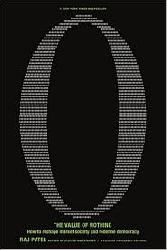
At a seminar hosted by the Departments of Politics and International Studies and Sociology last week British-born American, Dr Raj Patel addressed issues of food security and their complexities in the contemporary international environment as highlighted in a recent publication he co-authored with Mr Philip McMichael.
Dr Patel, award-winning writer, activist, journalist and academic, said, “In this paper (entitled “A Political Economy of some 21st Century Food Rebellions”) we are taking on the notion of people as ‘unthinking’. When it comes to media reports of food rebellions the common portrayal is of people who are impelled by base motives on hunger and food riot issues. People are portrayed as being motivated by two things, namely their growling stomachs and clenched fists.”
With reference to the April 2008 food riots in Haiti, he explained how rioters had been portrayed by the media as “crazed by hunger”, but that there had been a long history of civil unrest preceding the riots. “These people had been making political demands for months before the food riots, and yet that was seldom reported on in the media. So when the food riots happened it looked like it was all about a rebellion against increases in the price of food, and the demands they had been making for so long were completely overlooked,” he said.
He further explained that the mobilisation of individuals around issues such as food security or the lack thereof is a complex process, which deserves more attention. “Food insecurity means not knowing where your next meal is coming from, and is linked to having to depend on dollar meals from fast-food chains,” he added.
“There are important links to race, poverty and many other issues here. Whenever there is a food riot you need to ask yourself lots of questions. It is never as simple as people just turning up out of the blue to protest,” he said.
Dr Patel, who holds degrees in politics, economics and sociology from Oxford, the London School of Economics and Cornell University respectively, has lived and worked in South Africa, Zimbabwe and America for extended periods and is best known for his 2008 book Stuffed and Starved: The Hidden Battle for the World Food System.
His latest, The Value of Nothing, is a New York Times best-seller. He has worked at the World Bank, World Trade Organisation and the United Nations, and has since become an outspoken public critic of these organisations.
In his talk Dr Patel referred to the recent food riots in Mozambique as an example of the complexities he believes are part and parcel of such an event, saying “it was through conscious political and nationalist mobilisation that people took to the streets. A lot of the things we hear about food riots, especially in North Africa is about spontaneity, like it ‘just happened’ somehow by itself. A spontaneous protest takes a tremendous amount of time and extensive local organising.”
Dr Patel highlighted cultural, ecological, economic, political and sociological factors, saying that all these elements combine to manifest in the riot. “Food riots do not happen in isolation from everything else that is going on at the time. We need to develop a deeper understanding of the notion of ‘the mob’ to better understand the dynamics at play,” he said.
Not least of these, according to Dr Patel is the notion of nationalism, which underpins many food riots. “What’s very interesting is the role the flag plays in all of this. There tends to be a belief that if you’re a ‘good citizen’ you’ll take to the streets. If you look at the majority of food protests you’ll notice there’s generally a flag involved,” he said.
Dr Patel said that although one could expect the frequency of food riots to increase along with increases in the price of food, there are alternatives to current food production techniques that are good. “There are already reasons to believe that there are good things going on. We need not despair,” he said.
Dr Patel is currently a visiting scholar at the University of California at Berkeley’s Center for African Studies, an Honorary Research Fellow at the School of Development Studies at the University of KwaZulu-Natal and a fellow at The Institute for Food and Development Policy, also known as Food First.
He has testified about the causes of the global food crisis to the US House Financial Services Committee and is an Advisor to the United Nations Special Rapporteur on the Right to Food. He regularly writes for The Guardian, and has contributed to the LA Times, NYTimes.com, The San Francisco Chronicle, The Mail on Sunday, and The Observer. He has written a number of criticisms of various aspects of the policies and research methods of the World Bank and was a co-editor of the online leftist webzine The Voice of the Turtle.
